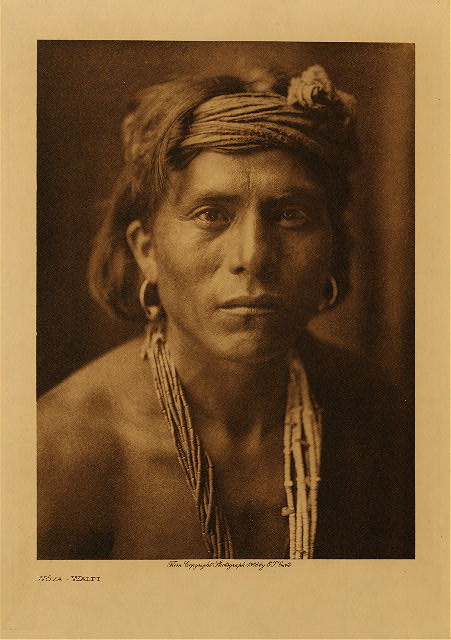Collecting IndiansCurtis' legacy is troubling on more serious grounds. Curtis "collected" people, their dwellings, and their material culture (baskets, clothing, cradleboards, for instance). Anthropologists shelved Indians and their artifacts in museums--thousands of Indian remains rested in museums until repatriation--but Curtis froze them in images. "His approach was anthropological, he wanted to capture an ideal in a pure form, as if the outside world didn't exist," says Wigler.
Curtis was only interested in the Indian past, because the Indian present was "spoiled" by Euroamerican intrusions, and, like most Americans of his day, he was convinced that Indians had no future. So he carefully eliminates the white presence in Indian life. His photo of a Hopi ceremonial shows only Indians participating and watching; another "photojournalistic" version of the same ceremonial shows many whites attending (as they do today).Comment: Paintings and photographs such as Curtis's contributed to the image of Indians as stoic, noble people of the past.



FYI, I chose this photo because this Hopi man bears a strong resemblance to Billy Honanie of Peace Party.
ReplyDelete